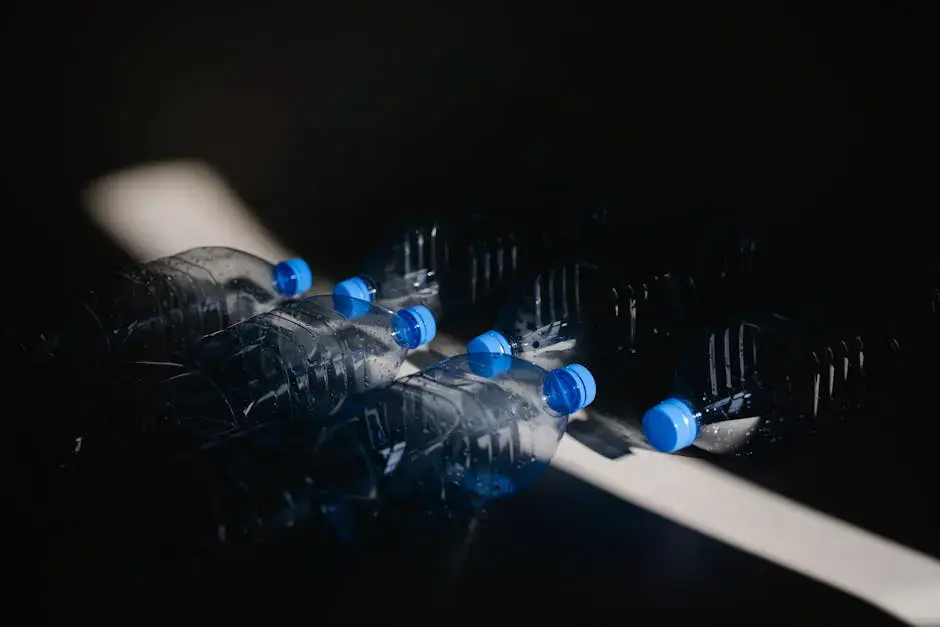How Do Recyclable Water Bottles Help the Environment?
- Site Admin
- May 12
- 3 min read
Recyclable water bottles are more than just convenient containers; they play a significant role in protecting our planet. This FAQ-style guide will delve into how these bottles contribute to environmental sustainability, reduce waste, and promote a circular economy. Let's explore the various dimensions of recyclable water bottles and their impact on the environment.

Understanding Recyclable Water Bottles
Recyclable water bottles are typically made from materials like PET (polyethylene terephthalate) that are easily processed at recycling facilities. Understanding what these materials are and how they behave can help consumers make better choices about their use and disposal.
When we think of recyclable water bottles, a common image often comes to mind: the clear, lightweight containers we frequently see in grocery stores or convenience shops. These bottles, designed for one-time use, have a much longer lifecycle if they are properly cared for after use.
One of the most critical aspects of recyclable water bottles is their potential to be remade into new products. This process not only saves energy but also reduces the need for new raw materials, showcasing the benefits of a circular economy.
The Environmental Benefits of Recycling
Recycling plays a crucial role in environmental protection by reducing the amount of waste that ends up in landfills. Landfills are not only an eyesore but can also release harmful substances into the soil and water during decomposition.
Additionally, when recyclable water bottles are processed, they help conserve valuable resources. For example, making new bottles from recycled materials uses significantly less energy compared to producing them from virgin resources. This means fewer carbon emissions and a smaller ecological footprint.
Another positive aspect of recycling these bottles is the reduction of plastic pollution in our oceans and waterways. Marine life is greatly affected by plastic waste, and by recycling our water bottles, we actively contribute to a healthier marine ecosystem.
Every bottle recycled has the potential to make a positive impact. By choosing to recycle, we join a collective movement towards a cleaner environment, making each individual effort incredibly meaningful.
How Recycling Reduces Plastic Waste
One of the most direct benefits of recycling water bottles is the significant reduction in plastic waste. Each year, billions of plastic bottles are consumed, and without recycling, many end up polluting our planet.
Recycling gives a second life to materials that would otherwise take hundreds of years to decompose. For instance, while a single plastic bottle might be discarded quickly, recycling it can create fibers for clothing, carpets, or even new containers, keeping material in circulation.
Moreover, recycling reduces the demand for new plastics. This shift not only lessens the burden on our natural resources but also cuts down on greenhouse gas emissions associated with plastic production.
The Role of Reusable Bottles in Sustainability
While recycling is essential, it is just one piece of the puzzle. The increasing popularity of reusable water bottles has shifted consumer behavior towards sustainability. These bottles make an even more significant environmental impact by preventing waste from entering the recycling stream in the first place.
Reusable bottles, made from stainless steel or BPA-free plastic, can be utilized for years. This means fewer disposable bottles purchased and great savings for both consumers and the environment.
Furthermore, using reusable options encourages a culture of sustainability. As individuals opt for reusable bottles, they inspire others to do the same, creating a ripple effect that benefits the entire community and the environment.
Steps to Properly Recycling Water Bottles
Recycling correctly is crucial in ensuring that your water bottles are effectively processed. Start by rinsing them out to remove any residue, which can contaminate the recycling stream. A quick rinse requires little effort but can have a significant impact.
Next, check with your local recycling program for specific guidelines on what materials are accepted, as requirements can vary. It’s essential to understand the recycling rules in your area to maximize the positive impact.
Finally, once you’ve sorted your recyclable water bottles, make a habit of ensuring they are placed in the appropriate bin. This simple act keeps the recycling process efficient and supports a healthier environment overall.
Final Thoughts on Recyclable Water Bottles and Their Benefits
In summary, recyclable water bottles are a key component in the effort to reduce plastic waste and protect our natural resources. By choosing to use and recycle these bottles, we not only help reduce pollution but also conserve energy and resources. Making informed decisions about our consumption can lead to a healthier planet for future generations.




Comments